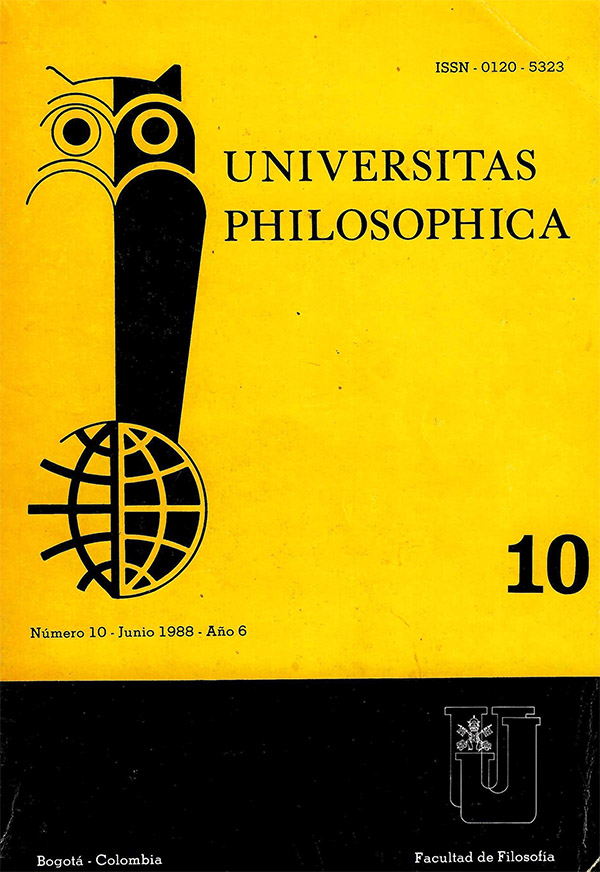Abstract
Teodoro de Andrés ha presentado el nominalismo de Ockham desde la perspectiva de la filosofía del lenguaje. Esta perspectiva se justifica por cuanto Ockham, según de Andrés, considera el signo conceptual como un índice de referencia a lo significado, superando con ello las muy conocidas posiciones realistas de la Edad Media, para las que el signo era primariamente representativo. Esta tesis rinde sus mayores beneficios cuando se la aplica al planteamiento y solución del problema del conocimiento, ya la teoría de la suppositio, que, por lo demás, nos introduce en el campo propio de la teoría de la significación de Ockham, esto es, un significacionismo proposicional. La presentación de de Andrés se estudia con todo cuidado, señalándose la plausibilidad de su tesis principal, aunque la argumentación de conjunto es bastante deficiente, y en algunos puntos fundamentales incluso traiciona el espíritu y la letra del pensamiento ockhamiano.This journal is registered under a Creative Commons Attribution 4.0 International Public License. Thus, this work may be reproduced, distributed, and publicly shared in digital format, as long as the names of the authors and Pontificia Universidad Javeriana are acknowledged. Others are allowed to quote, adapt, transform, auto-archive, republish, and create based on this material, for any purpose (even commercial ones), provided the authorship is duly acknowledged, a link to the original work is provided, and it is specified if changes have been made. Pontificia Universidad Javeriana does not hold the rights of published works and the authors are solely responsible for the contents of their works; they keep the moral, intellectual, privacy, and publicity rights.
Approving the intervention of the work (review, copy-editing, translation, layout) and the following outreach, are granted through an use license and not through an assignment of rights. This means the journal and Pontificia Universidad Javeriana cannot be held responsible for any ethical malpractice by the authors. As a consequence of the protection granted by the use license, the journal is not required to publish recantations or modify information already published, unless the errata stems from the editorial management process. Publishing contents in this journal does not generate royalties for contributors.


